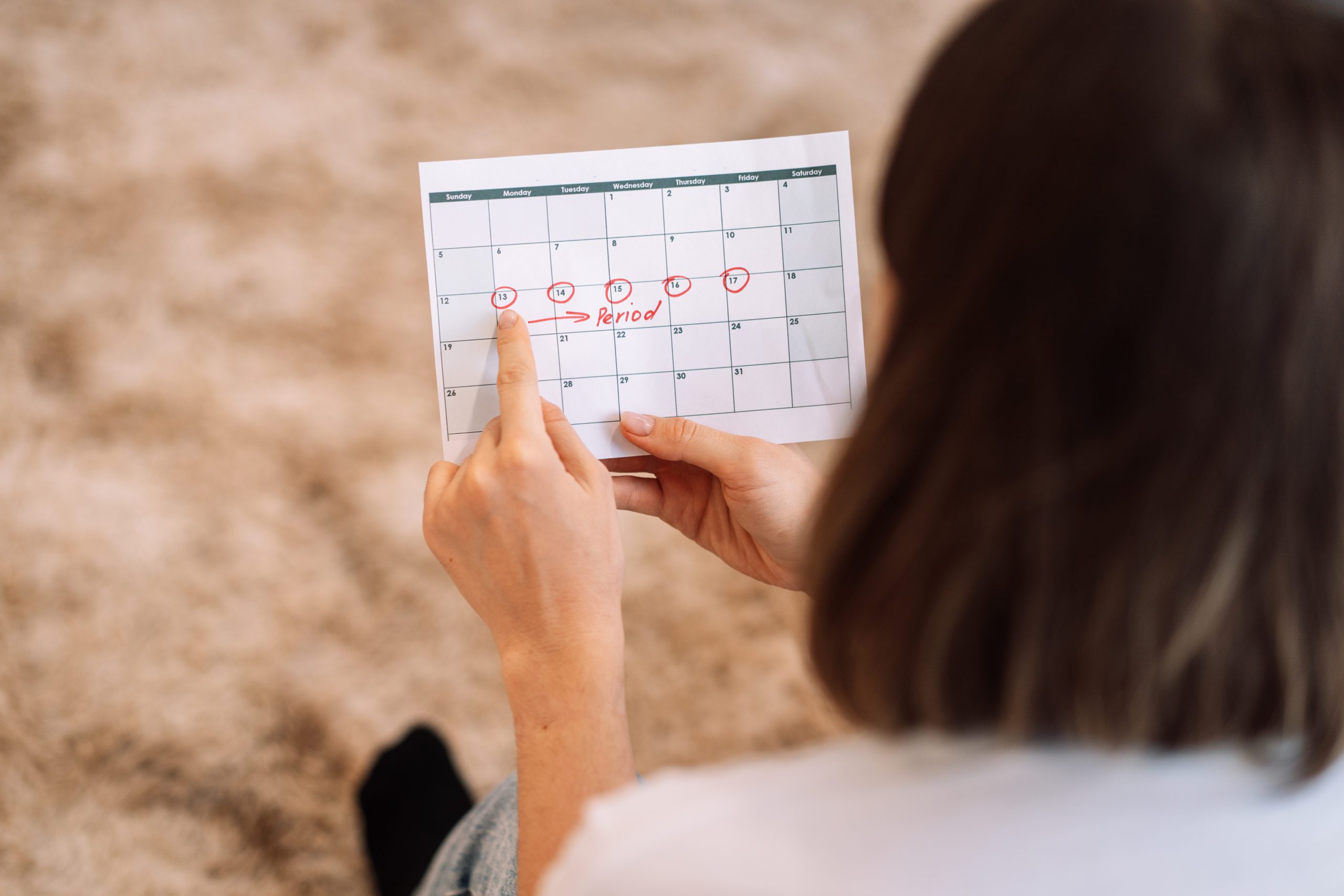
If you’ve missed a period and don’t want to be pregnant, you may feel a little frantic. But, what if you’ve missed a period and you have a negative pregnancy test? Even if your negative pregnancy test brings relief, you may also have lots of questions. Should you take another test? If you’re not pregnant, then what’s going on? Should you call a doctor?
Other than pregnancy, a variety of things could cause you to miss your period. So, take a deep breath and let’s talk about some of the possible causes.
What can cause a missed period?
Many women miss their periods. In their lifetime, one in twenty-five women experience amenorrhea (a missing period for three months or more). Even though it’s common, you’ll still want to explore possible causes:
- Pregnancy- You’ll first want to rule out pregnancy by taking a test. Most home tests detect a pregnancy around the time a woman misses her period. For free pregnancy testing, make an appointment at the Pregnancy Resource Center.
- Stress- When you experience any type of stress, your brain forces your body into preservation mode and your period may stop.
- Breastfeeding- If you’re breastfeeding, your period may take a while to regulate. However, be aware that you can still get pregnant again even while breastfeeding.
- Medications- Medications such as antidepressants, blood pressure medications, or allergy medications could alter your period. If a doctor recently prescribed these to you, call and talk to them about your concerns.
- Low Body Weight- Women who experience rapid weight loss or low body weight could miss their period. If you’re concerned about your weight, speak to your healthcare provider.
- Medical Conditions- Conditions that affect the hypothalamus, pituitary, or thyroid could cause an irregular period.
- Gynecological Conditions- Some women who have a history of a cesarean section, a Dilation and curettage (D&C), or surgery for uterine fibroids could develop uterine scar tissue that prevents menstruation. Also, some women who have Polycystic Ovarian Syndrome (PCOS) experience irregular periods.
- Menopause- Around age 50, women’s bodies begin to change as they go through menopause and stop having periods. Early menopause can begin around age 40.
- Hormonal Birth Control- Hormonal birth control alters a woman’s cycle, and so sometimes she’ll miss a period. Make sure you talk to your doctor about what to expect. With some birth control, women should continue having a period.
- The Morning After Pill- Using emergency contraception could delay your period by a week or two.
When should I go to the doctor if I’ve missed a period?
Most gynecological doctors recommend seeking medical care if you’ve missed your period for three months or more. They’ll evaluate you for an underlying cause. A doctor may do a pelvic exam, look at the hormone levels in your blood, and obtain a complete medical history. Bring all of your questions and concerns with you to the appointment.
How do doctors treat a missed period?
If a woman misses her period, then a doctor will first address the underlying cause. For example, if you miss your period because of stress, you’ll want to decrease the stress in your life.
Do I need to have a period?
You need hormones in your body to regulate your menstruation but to also maintain your body. Missing a period indicates that your body doesn’t have the hormonal rhythms it needs to function well. Sometimes prolonged dysregulation could lead to complications such as osteoporosis (weakening of the bones) or cardiovascular disease. So, seek medical care if you’ve missed your period for three months or more.
Can a sexually transmitted infection cause me to miss my period?
Typically, a sexually transmitted infection will not cause an irregular period. Some STIs cause bleeding between periods, but most women don’t miss a period. Make an appointment at the Pregnancy Resource Clinic for free STI testing!
Can I still get pregnant, even if I’ve missed a period?
In some cases, women who miss a period could still get pregnant because her body may still ovulate. If you’ve missed a period, rule out a pregnancy first.
What if my period comes back after it was missing? Should I still be worried?
A woman should be aware of changes in her menstrual cycle. So, it’s always a good idea to keep records of your period- when it starts, how long it goes, and any abnormal symptoms. If your period remains irregular, you should speak with a doctor.
What do I do if I’ve missed a period, but have a negative pregnancy test?
Wait a few more days and then take another pregnancy test at home. When used correctly, home tests can detect pregnancy within a few days of a missed period.
Free Pregnancy Testing in Maryville and Sevierville, TN
At the Pregnancy Resource Center, we know that missing a period feels confusing. Even if you’re still nervous about an unexpected pregnancy, you don’t have to face this alone. Our nurses provide free pregnancy testing and compassionately answer your questions. Call us today at 865-977-8378 or make an appointment online!
